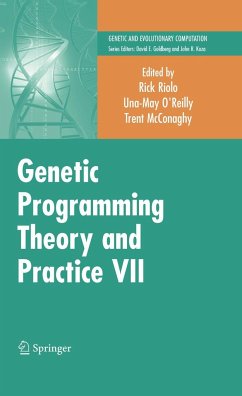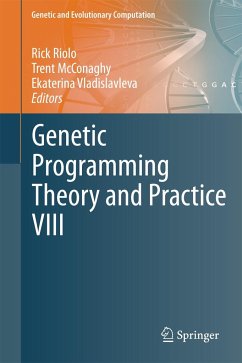
Linear Genetic Programming
Versandkostenfrei!
Versandfertig in 6-10 Tagen
113,99 €
inkl. MwSt.
Weitere Ausgaben:

PAYBACK Punkte
57 °P sammeln!
Linear Genetic Programming presents a variant of genetic programming (GP) that evolves imperative computer programs as linear sequences of instructions, in contrast to the more traditional functional expressions or syntax trees. Primary characteristics of linear program structure are exploited to achieve acceleration of both execution time and evolutionary progress. Online analysis and optimization of program code lead to more efficient techniques and contribute to a better understanding of the method and its parameters. In particular, the reduction of structural variation step size and non-ef...
Linear Genetic Programming presents a variant of genetic programming (GP) that evolves imperative computer programs as linear sequences of instructions, in contrast to the more traditional functional expressions or syntax trees. Primary characteristics of linear program structure are exploited to achieve acceleration of both execution time and evolutionary progress. Online analysis and optimization of program code lead to more efficient techniques and contribute to a better understanding of the method and its parameters. In particular, the reduction of structural variation step size and non-effective variations play a key role in finding higher quality and less complex solutions. Typical GP phenomena, such as non-effective code, neutral variations, and code growth are investigated from the perspective of linear GP.
This book serves as a reference for researchers; it also contains sufficient introductory material for students and those who are new to the field.
This book serves as a reference for researchers; it also contains sufficient introductory material for students and those who are new to the field.












